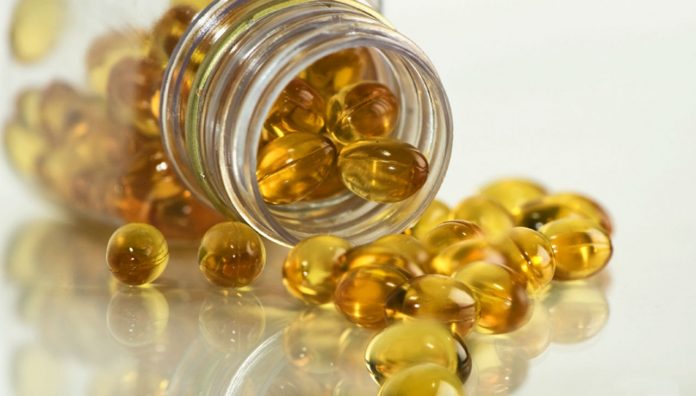The New England Journal of Medicine has released two studies about the impact of omega-3 supplements on major cardiac events and cancer. While one study found that omega-3 supplements have minimal, if any, impact on the prevention of major cardiac events or cancer, the other found that icosapent ethyl, a synthetic derivative of the omega-3 acid eicosapentaenoic acid (EPA), might have some impact on cardiac health.
The first study, dubbed by the New York Times as the ‘gold standard of medicine’ due to its impressive scale, found that the value of omega-3 supplements were far more limited than previously thought.
After observing 25,871 participants in trial and placebo groups over a period of 5 years, researchers found that supplementation with one dose of omega-3 supplements per day did not significantly lower incidences of cardiovascular events or invasive cancer.1
Even so, while on the whole omega-3 supplements did not lead to a reduction in overall cardiovascular events, there was some evidence to suggest that participants who took omega-3 supplements experienced 28 percent reduction in heart attacks. Furthermore, there was a 77 percent reduction amongst African-American patients.2 In an interview with the New York Times, one of the researchers who led the trial, Dr JoAnn E. Manson, called these numbers ‘pretty amazing,’ but said that the results were not definitive.
‘The data has to be very strong before you go out and recommend to everyone in the world to take supplements, and we’re certainly not doing that,” she told the Times. ‘We’re saying, “Talk to your doctor, especially if you have low fish intake or are African-American.”’
Dr Clifford J. Rosen of the Maine Medical Center Research Institute in Scarborough emphasised that the results, on the whole, indicate that supplements have a limited impact on both cardiac health and the prevention of cancer.
‘In terms of preventing cancer, I think the door is closed. I don’t think there is anything there,’ he told the New York Times. The study also showed that omega-3 fatty acid supplements do not reduce major cardiovascular events or cancer, ‘period,’ he said. ‘That’s what people should take home with them.’
Meanwhile, another study released in the same edition of The New England Journal of Medicine found that icosapent ethyl could have a positive impact on cardiac health.
Unlike the first study, which tested the impact of fish oil supplements on major cardiovascular events, the second study tested the impact of icosapent ethyl on ischemic events, including sudden cardiac death.
Researchers found that, in a study of 8,179 patients, the risk of ischaemic events was ‘significantly lower’ amongst those who took icosapent ethyl (Vascepa) twice daily.3
However, Cia Connell, a cardiac pharmacist from the National Heart Foundation of Australia, says that the results of the two studies are not contradictory.
‘Vascepa is a chemically-modified ecosapentanoic acid, which is thought to be one of the active ingredients in fish oil. It is quite potent, but it’s not equivalent at all to fish oil. And the results of the study looking at Vascepa are not applicable to fish oil,’ she told Australian Pharmacist.
Ms Connell said that it would be premature to change the Heart Foundation’s recommendations based on the outcome of this study.
‘This is only a single study showing a benefit,’ she said. ‘Guidelines are based on wide-ranging reviews of multiple sources of evidence. The Heart Foundation’s Guidelines for the treatment of patients who have had a heart attack will be considered for review in 2019-2020,’ she said in a statement.
Further advice for pharmacists about omega-3 supplements can also be found in the Complementary medicines monograph section of the latest edition of the Australian Pharmaceutical Formulary and Handbook (APF24).
References
1-2. Mason JE, Cook NR, Lee I-Min et al. Marine n−3 fatty acids and prevention of cardiovascular disease and cancer. NEJM 2018. Epub 2018 November 10. At: www.nejm.org/doi/full/10.1056/NEJMoa1811403
3. Bhatt LD, Steg GP, Miller M et al. Cardiovascular risk reduction with icosapent ethyl for hypertriglyceridemia. NEJM 2018. Epub 2018 November 10. At: www.nejm.org/doi/full/10.1056/NEJMoa1812792



 National Medicines Symposium 2024 speakers (L to R): Steve Waller, Professor Jennifer Martin, Professor Libby Roughead, Tegan Taylor[/caption]
National Medicines Symposium 2024 speakers (L to R): Steve Waller, Professor Jennifer Martin, Professor Libby Roughead, Tegan Taylor[/caption]


 This CPD activity is sponsored by Reckitt. All content is the true, accurate and independent opinion of the speakers and the views expressed are entirely their own.[/caption]
This CPD activity is sponsored by Reckitt. All content is the true, accurate and independent opinion of the speakers and the views expressed are entirely their own.[/caption]










